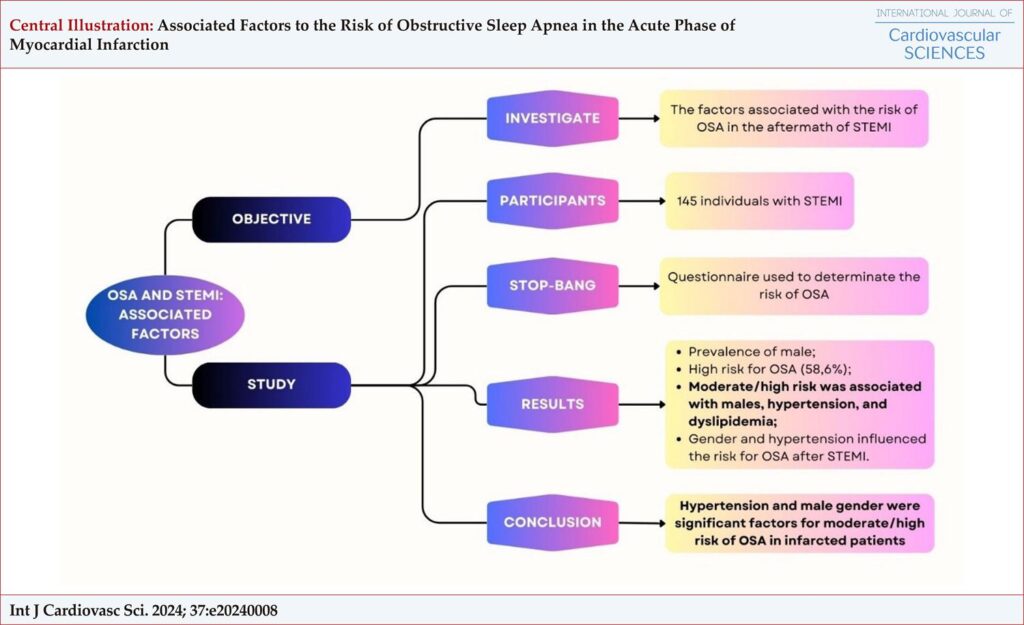International Journal of Cardiovascular Sciences. 17/Jan/2025;38:e20240008.
Associated Factors to the Risk of Obstructive Sleep Apnea in the Acute Phase of Myocardial Infarction
This Original Article is referred by the Editorial "Obstructive Sleep Apnea in Acute Myocardial Infarction: A Prognostic Risk Factor beyond Traditional Players?".
Abstract
Background
Obstructive sleep apnea (OSA) promotes endothelial dysfunction and systemic inflammation, and it is associated with shorter long-term survival and unfavorable clinical outcomes in patients with ST-segment elevation myocardial infarction (STEMI).
Objectives
To investigate the factors associated with the risk of OSA in the aftermath of STEMI.
Methods
A cross-sectional, quantitative study conducted with 145 individuals with STEMI in a large Brazilian teaching hospital. Anthropometric measurements were performed in addition to collecting sociodemographic/clinical data and lifestyle habits. The STOP-BANG questionnaire was used to determine the risk of OSA. The results were analyzed using descriptive statistics, association tests, and logistic regression. A significance level of 5% was adopted for the statistical analysis.
Results
The mean age of the participants was 62 ± 12 years, with a predominance of males (71%), white individuals (57.2%), and those at high risk of OSA (58.6%). Moderate to high risk of OSA was associated with male gender, hypertension, and dyslipidemia. Gender (HR = 6.13, 95% CI [1.88, 20.03], p = 0.003) and hypertension (HR = 4.31, 95% CI [1.27, 14.63], p = 0.019) were factors influencing the risk of OSA after acute myocardial infarction.
Conclusions
Hypertension and male gender were significant factors for a moderate/high risk of OSA in infarcted patients.
Keywords: Obstructive Sleep Apnea; Myocardial Infarction; Risk Factors
470

